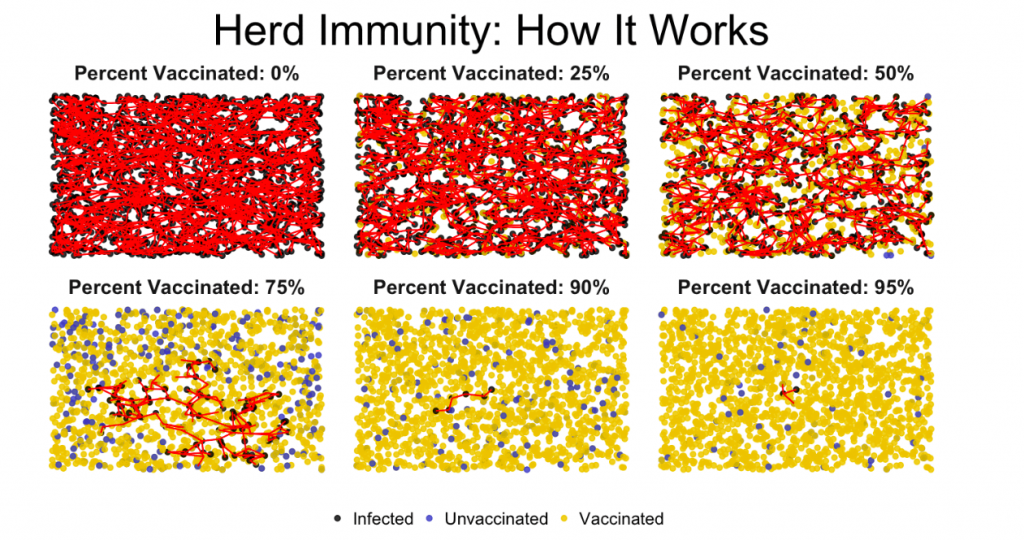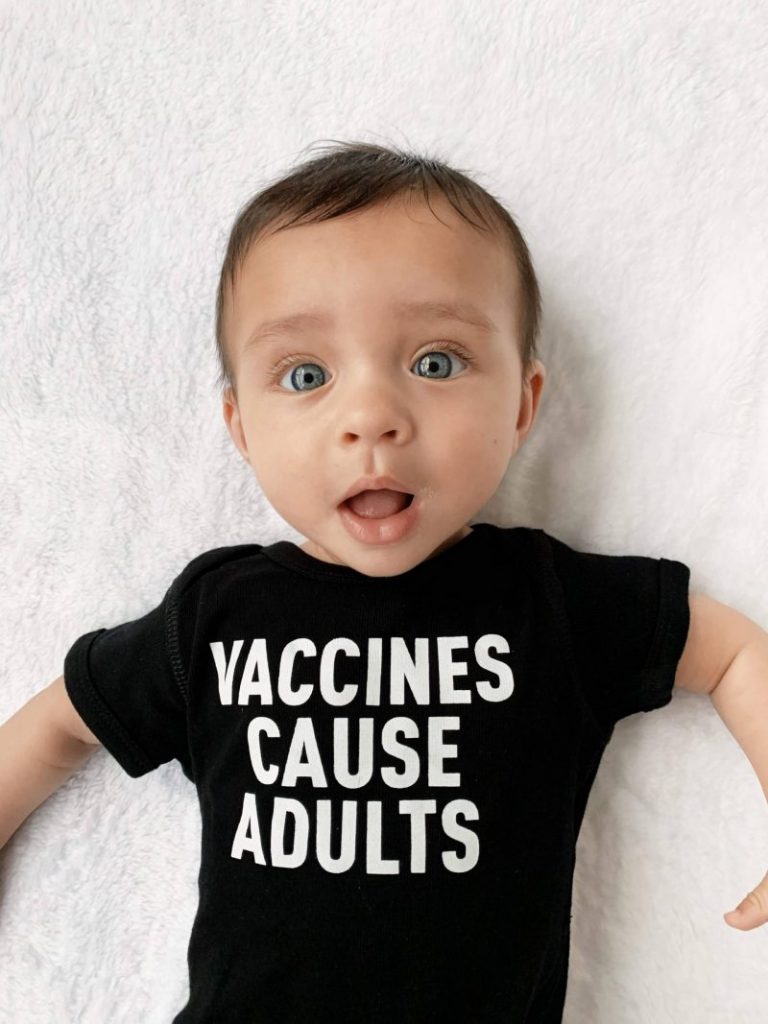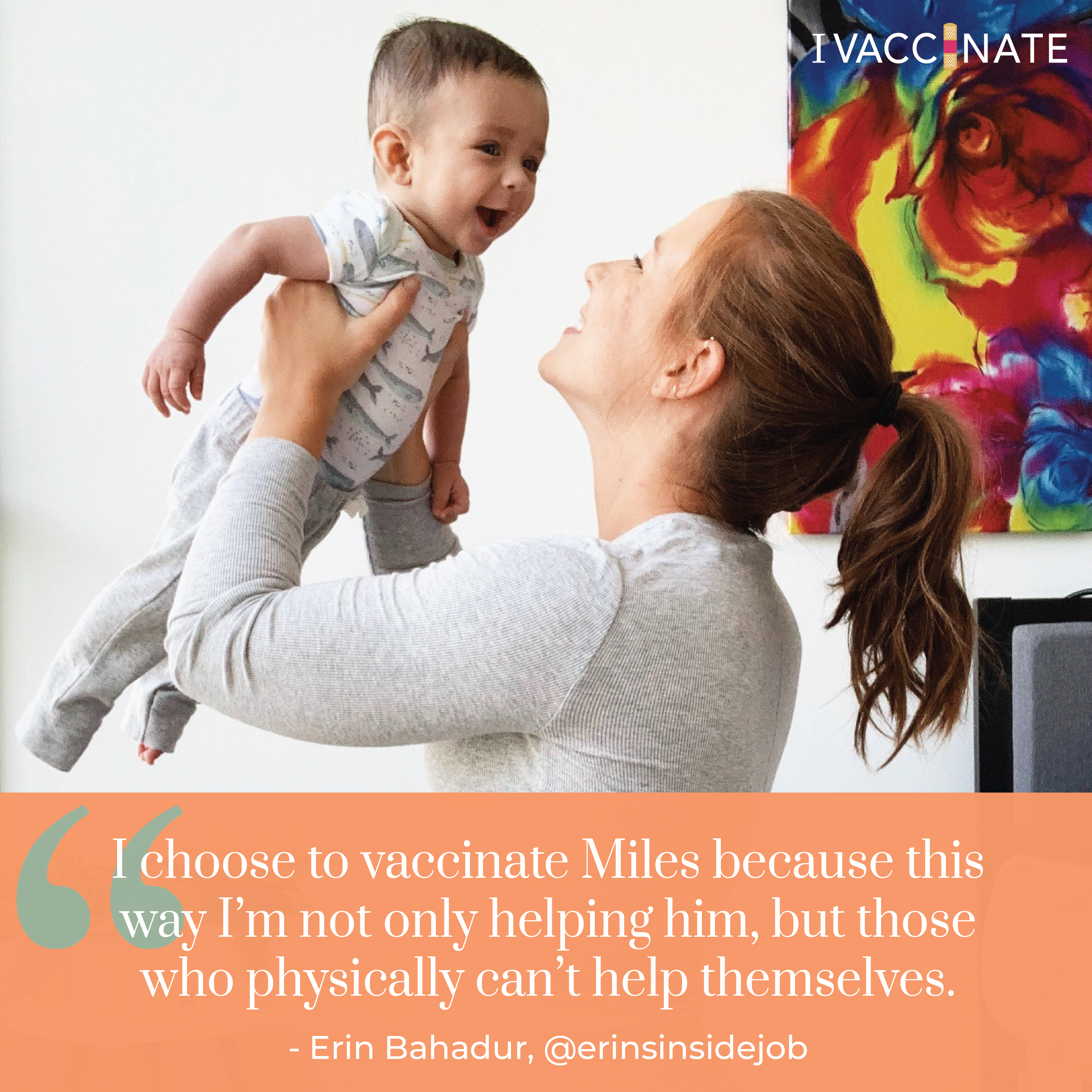The following sponsored content originally appeared on Erin’s Inside Job in partnership with I Vaccinate. Read the full piece here.
For me, choosing to vaccinate my son was a no-brainer. He was strong — being able to come off his breathing tubes and leave the NICU earlier than anticipated — and healthy. There was no reason not to continue to provide protection for him as he got older. When he was two months old, we traveled to New Jersey to attend a relative’s wedding. Before we left, I heard that the airport we were flying into had declared a measles outbreak. For reference, children are not able to receive the measles vaccine until they are 12 months old, meaning that Miles was about 10 months too early.
I had always intended to vaccinate my children, but it took me being personally affected by a disease that had previously been declared eliminated for 19 years to really take a look at what was happening with vaccinations in our country. Thankfully, we safely made the trip with no issues, but that has not been the case for other children and adults.
I’ve partnered with I Vaccinate to share my own experience and some crucial information about vaccines in today’s post. Here are the biggest takeaways I’ve learned through this partnership and simply raising a child in today’s atmosphere.
Vaccines are safe
You may have heard the concerns about the link between vaccines and autism. It’s certainly the first thing that comes to mind when I ask myself why someone would choose not to vaccinate their children. This was the result of a 1998 study by Andrew Wakefield that postulated that eight children developed autism and intestinal issues after receiving the MMR (measles, mumps, & rubella) vaccine. What seems to have missed a comparable amount of publicity is the fact that this study was later retracted due to scientific misconduct in the form of fraudulent and misrepresented data. Follow up studies compared hundreds of thousands of children and found no evidence of a link between the MMR vaccine and autism.
Concerns over the use of thimerosal, a mercury-containing preservative, and autism is another reason that parents choose not to vaccinate, and yet another claim that has been proven untrue through numerous scientific studies. It should also be noted that thimerosal is no longer used in any vaccines except the influenza vaccine.
I have seen concerns echoed a number of times in a mother’s Facebook group that I belong to that parents are worried about their children being “overloaded” on vaccines, as several are typically given at once during an immunization schedule. According to the I Vaccinate website,
- Kids are exposed to 2,000 to 6,000 antigens every day.
- A strep throat infection, for example, exposes children to at least 25 to 50 antigens. That’s comparable to the antigens in the vaccines that infants get at their two-month visit–the DTaP, IPV, HepB, Hib, and rotavirus vaccines combine to just 54 antigens.
With the advancement of science, children are also now able to be protected from more diseases using fewer antigens compared to 1980.
Vaccines protect everyone
In addition to protecting Miles himself, there’s the bigger picture to think of. The more people who are vaccinated, the more protection offered to the community. This is a concept known as “herd immunity.”

There are several groups of people who are more at risk for contracting diseases:
- The elderly
- Babies who are too young to receive vaccines
- Pregnant women
- Anyone who is immunocompromised or unable to receive vaccines for other medical reasons.
By vaccinating my son, I can help ensure that those populations who are unable to get vaccines are also protected.
It could be argued by those who choose not to vaccinate their children that enough people WILL vaccinate and therefore it’s not a big deal. That’s certainly what popped into my mind when I read about herd immunity. The problem is that with enough people opting out of vaccinations, that immunity decreases. It reminds me of the bystander effect in modern psychology, where the more people there are, the less likely it is that someone will take action. Each parent thinks that another parent will vaccinate, with that parent thinking another will, and so on.
I choose to vaccinate Miles because this way I’m not only helping him, but those who physically can’t help themselves, even if they wanted to.

I Vaccinate
I will admit that although my gut told me that vaccinating Miles was the right choice, I still felt unprepared to counter any points that could be brought up in a discussion with someone with the opposite mindset. I didn’t know where to learn about the facts behind vaccines aside from random Googling and piecing together information.
I Vaccinate provides information & tools based on real medical science and research to help Michigan parents protect their kids. When they reached out to me and I took an in depth look at their website, I was honestly more than impressed. They addressed 47 of the most frequently asked questions/concerns with very comprehensive answers that also linked applicable studies and outside resources for further reading. If a question wasn’t addressed, they made it easy to contact them so they could provide an answer. I was blown away with the amount of information and resources provided and it has quickly become my go-to resource to share with people and consult for my own knowledge.
Vaccinating our son is what we decided is best for our family. Questioning things is part of what makes you a good parent, but when doing your research, make sure to use credible sources such as the CDC website or IVaccinate.org.

